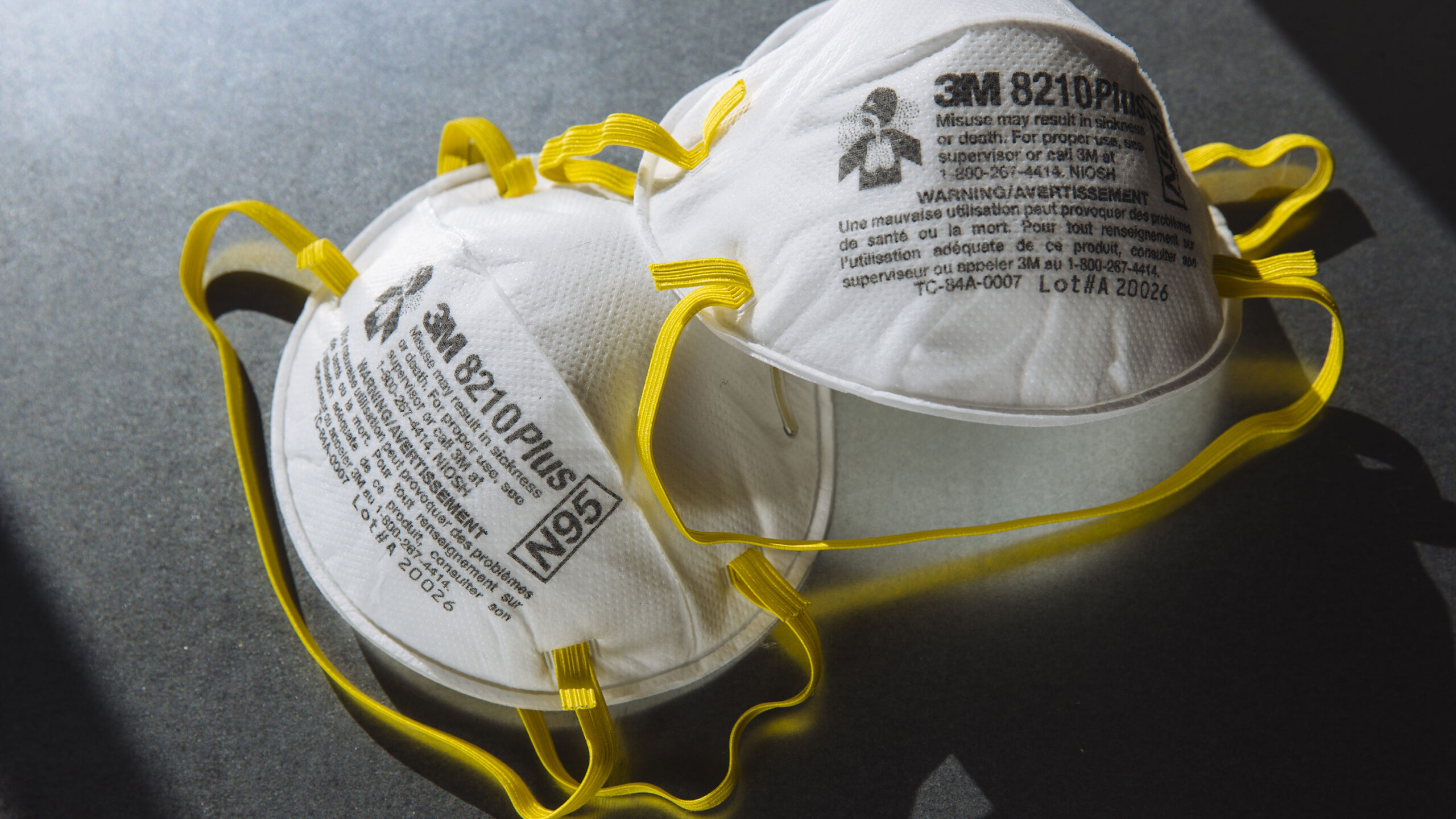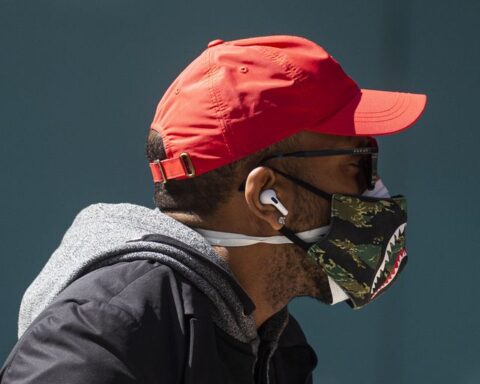Sure, everyone is tired of wearing them. But as studies have shown, and as Dr. Anthony Fauci has pointed out many times, masks are the single most effective way to protect yourself and others from getting infected with the coronavirus that causes Covid-19, the disease.
“Masks are a two-way street. Masks protect you and me” by preventing the spread of droplets and aerosol that may contain the virus, the US Centers for Disease Control and Prevention says in its mask guidance.
Just because vaccines are here doesn’t mean Americans should let down their guard. In fact, Dr. Richard Besser, former acting CDC director, said that would be “incredibly risky.”
“It is absolutely essential that we continue to do steps beyond vaccination to keep this under control,” Besser said.
The more the virus has the opportunity to spread, the greater the risk that it will mutate and more variants will appear, as have the variants first identified in the United Kingdom, South Africa and Brazil.
“And if the vaccines aren’t as effective against some of these variants, then we could see the gains that we’re so excited about right now, we could see those reversed in a very short amount of time.”
In the beginning of the pandemic, we were told not to wear a mask, and to reserve them for those who were sick or for health care workers. But that was before scientists understood how the virus was transmitted, and it was at a time when there was a shortage of masks among health care workers.
Now, some people are even recommending wearing two masks at once.
Here’s what you should know about masks.
Here’s where masks are required
President Joe Biden has called on everyone to wear a mask when out in public, and he has made it mandatory on federal property. Masks are required on public transportation and in airports and transit stations.
Most states and some local governments have some type of mask mandate in place, and most retailers require shoppers to wear them in their stores.
It’s important to note that children younger than 2 should not wear a mask, according to the CDC.
Now, more than a year into the pandemic, Americans may soon get standards for masks so we will know which masks work best.
ASTM International, an international technical standards organization, and the National Personal Protective Technology Laboratory are working on standards on filter efficiency, sizing and fit, cleaning and recommended period of use or reuse.
What type of mask should you wear?
N95 masks are the gold standard of masks because they block 95% of large and small particles using an electrostatic filter.
If everyone would wear N95 masks for four weeks in risky settings, “it would stop the epidemic,” Dr. Abraar Karan, an internal medicine physician at Brigham and Women’s Hospital and Harvard Medical School, told CNN Chief Medical Correspondent Dr. Sanjay Gupta.
Beware of fake N95 masks — they have flooded the market, and they may not meet safety standards. Look for the National Institute for Occupational Safety and Health’s NIOSH stamp of approval.
Some health experts are calling for a nationwide rollout of N95 masks, but they are currently reserved for health care workers, partly because of a shortage of the masks.
KN95 masks also offer good protection, but they are not certified by the US National Institute for Occupational Safety and Health. A few manufacturers of KN95 masks have been given emergency use approval for them to be used in health care settings in the United States.
Surgical masks have three layers and generally offer more protection than cloth masks.
Cloth masks have the advantage of being washable and reusable. Be sure that the mask has at least two layers — the more layers, the better.
“If you’re wearing a cloth mask, it should be a multi-layered mask so that you have several layers of potential protection for a single mask,” CDC Director Dr. Rochelle Walensky told CNN’s Anderson Cooper and Sanjay Gupta.
Aside from their scarcity, N95 masks are “very hard to tolerate when you wear them for long periods of time,” Walensky said.
“I worry that if we suggest or require that people wear an N95, they won’t wear them all the time. They’re very hard to breathe in, when you wear them properly,” she said.
Should you wear two masks?
Fauci, director of the National Institute of Allergy and Infectious diseases, recently has been sporting two masks, one on top of the other. The CDC hasn’t issued any guidance on doubling up, but Fauci said that’s because it doesn’t yet have scientific data backing up the effectiveness.
“Can we make a general recommendation that doesn’t have scientific basis yet? No,” he said during a White House briefing. “But when the science comes along and tells us that it is better or not, then you will see a recommendation being made by the CDC.”
In the meantime, Fauci said, “there are many people who take the commonsense approach. If you’re talking about a physical barrier, and as the CDC recommends, you want at least two layers within the mask as a physical barrier, and you feel maybe more of a physical barrier would be better.”
The main thing to know is that wearing a mask, any mask, and keeping your distance from others will help the country out of this pandemic.
“The most important thing is that everybody should be wearing a mask,” Fauci told Anderson and Gupta.


